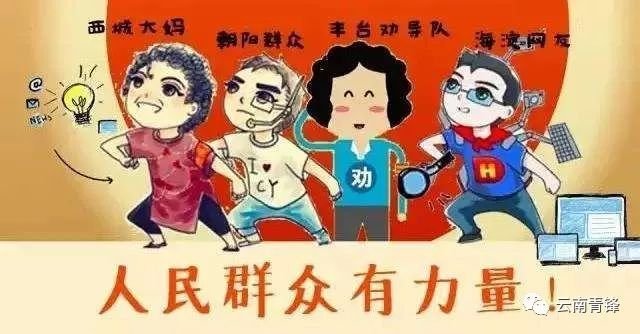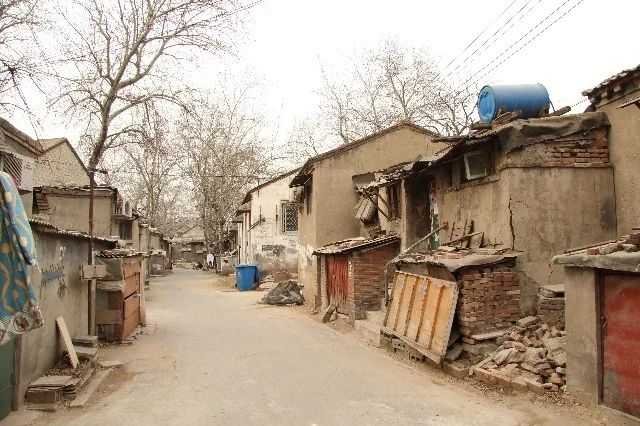Four Tribes of Beijingers You Should Know About
In contrast to Shanghai, where people are considered less Shanghainese the further they settle from the People’s Square, in the capital, the further you live from the center, the more Beijingers tend to coalesce around ecosystems of their own design. Here, we take a quick look at the four major tribes of Beijing, and where you're most likely to find them.
朝阳群众 cháoyáng qúnzhòng Chaoyang Folks
Trump Card: Reporting unlawful behaviors

There is no doubt that this district has the most diverse nightlife in the capital. However, in the streets where the neon shines bright, more shadows are certain to be creeping around the corner. As one of the most densely populated areas in Beijing, it's not plausible to rely solely on the manpower of the police to spot every possible hint of crime, and that’s precisely where the warm-hearted, hot-blooded Chaoyang Folks come to the rescue.
Since 2013, Chaoyang Folks have successfully helped the police locate and arrest thousands of criminals. Although there are similar groups snooping on baddies in other districts – the 西城大妈 xīchéng dàmā Xicheng Dama, 海淀网友 hǎidiàn wǎngyǒu Haidian Netizens, and 丰台劝导队 fēngtái quàndǎo duì Fengtai Persuasion Team, just to name a few – Chaoyang Folks still stand out for contributing the most in cases related to public figures. In fact, more than ten celebrities have been reported by Chaoyang Folks for drug use, including Jaycee Chan, the son of Jackie Chan, and the once-famous Taiwanese actor Kai Ko. The true identity of Chaoyang Folks remains unknown due to the policy of protecting informants, which leaves us wondering: Maybe there is no Chaoyang Folk after all, or maybe everyone is the Chaoyang Folk.
西城民工 xīchéng míngōng Xicheng Workers
Trump Card: The client is always right

What wakes Xichengers up on a Saturday morning is not a headache caused by fake liquor from a sketchy Chaoyang bar, but rather having to get to work six (or more) days a week. These hard-working folks – known to the rest of the world as financial or white-collar workers – were on the up and up before their bubbles and dreams burst during the 2008 financial crisis. Before that though, these folks had the bull (market) by the horns, dealing in transactions to the tune of billions of US dollars, dreaming of cigars under the narrow sky of Wall Street. Yet, with COVID-19 again exacerbating the global financial ecosystem and greater disruption caused by an emerging digital financial industry, these old-timers are largely left to bend down and harvest scattered profits from the fields of capital, all while sporting their fancy suits.
海淀妈妈 hǎidiàn māmā Haidian Moms
Trump Card: Strict adherence to the after-school timesheet

Speaking of investments, if Haidian Moms ran Wall Street then it's pretty safe to assume people around the world wouldn’t need to bear the burden of another financial dip. Showing off a Birkin bag in this group won’t earn you much praise, but mentioning that your kid is enrolled at a key Municipal middle school or Ivy League university will surely turn a muted group chat into a hyped-up debate about this year's finest educational institutions. Home to most of China's first-tier universities, educational background in Haidian is everything. Indeed, the 996 work schedule pales in comparison to the extracurricular schedule of a Haidian kid.
南城土豪 nánchéng tǔháo Nancheng Richies
Trump Card: Owning five houses

Once upon a time, Nancheng, the southern part of Beijing, was considered a shameful hovel due to its dilapidated infrastructure and severe pollution. Even Feng Shui experts will tell you the northern city has 上风上水 shàngfēng shàng shuǐ the upper water and upper wind. However, what they couldn’t predict is that this shabby little corner of town has since turned round faster than that Feng Shuier's wind. With southern Beijing's development plans moving at a quickened pace, many of the area's residents got a considerable amount of kickbacks – or even several replacement houses – from the government, thus achieving the financial freedom that Chaoyang Folks, Xicheng Workers, and Haidian Moms are all accustomed to. Despite this, the humble Nanchang Richies often choose to show it off with nothing more than a casual outfit. And, though the character 土 tǔ, meaning dirt, is still embedded in their title, it seems most of them don’t really mind it.
Read: Pee-king Report: Foreigners Pool Funds for an Appetizer From Michelin Star Restaurant
Images: Medium, Zhihu, Sohu, Henunews







